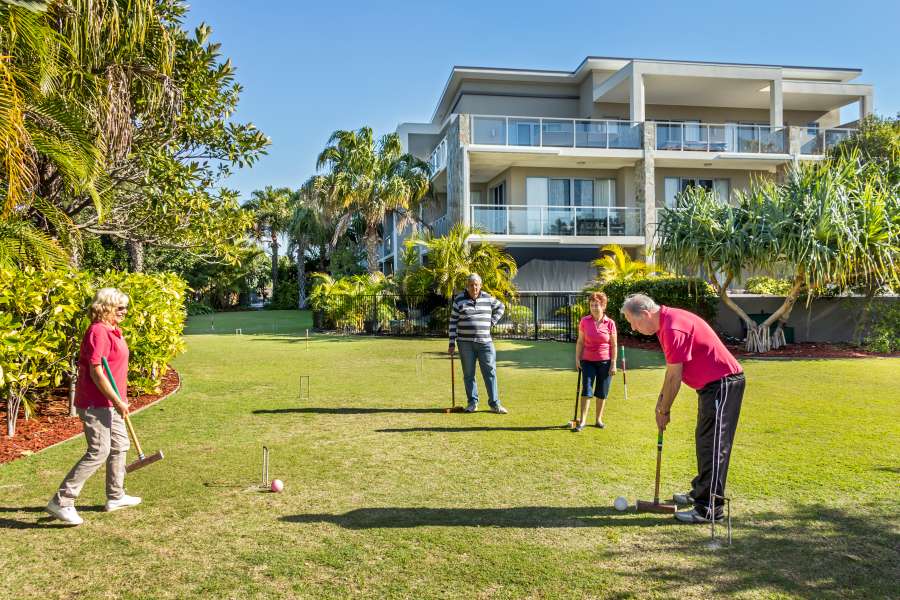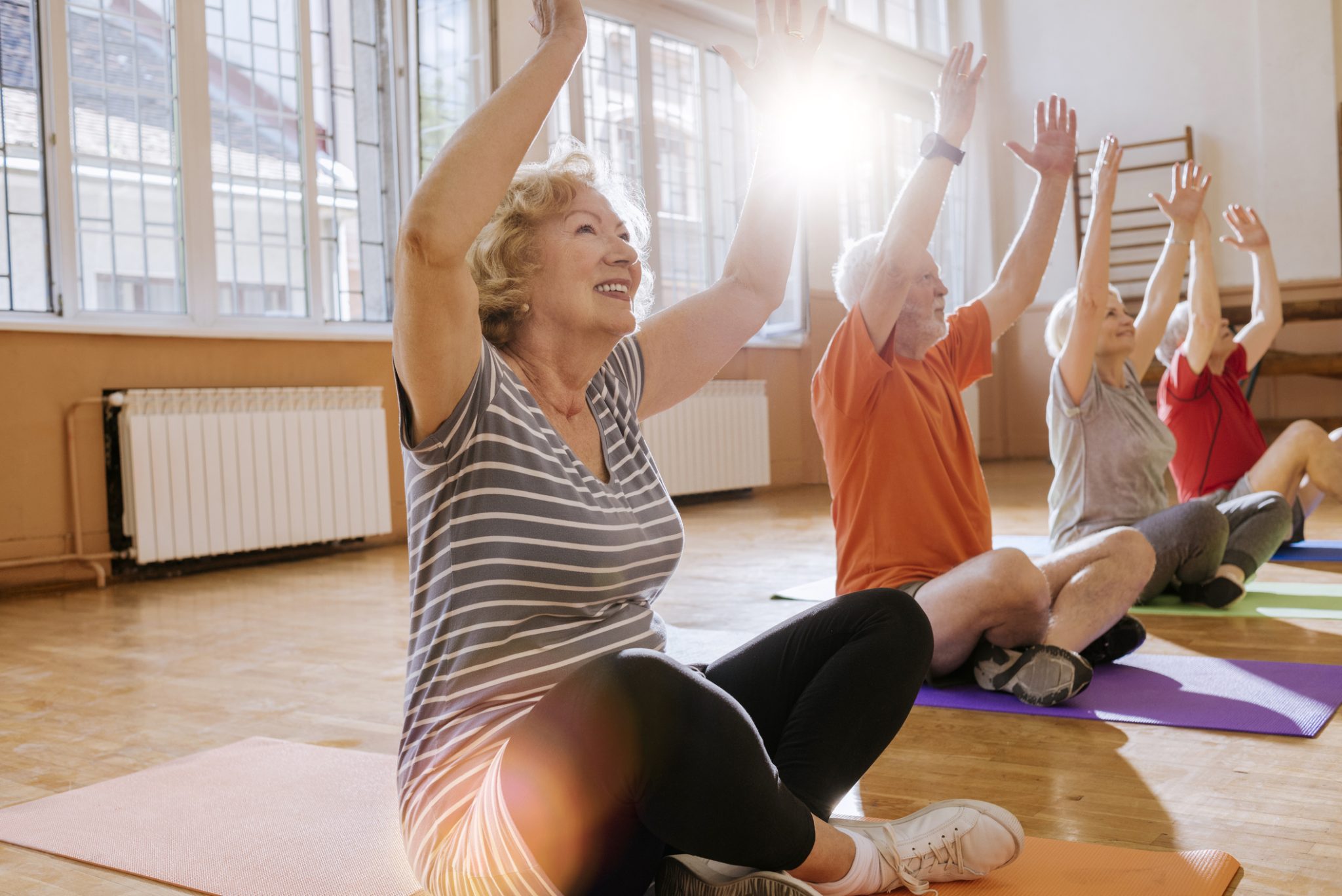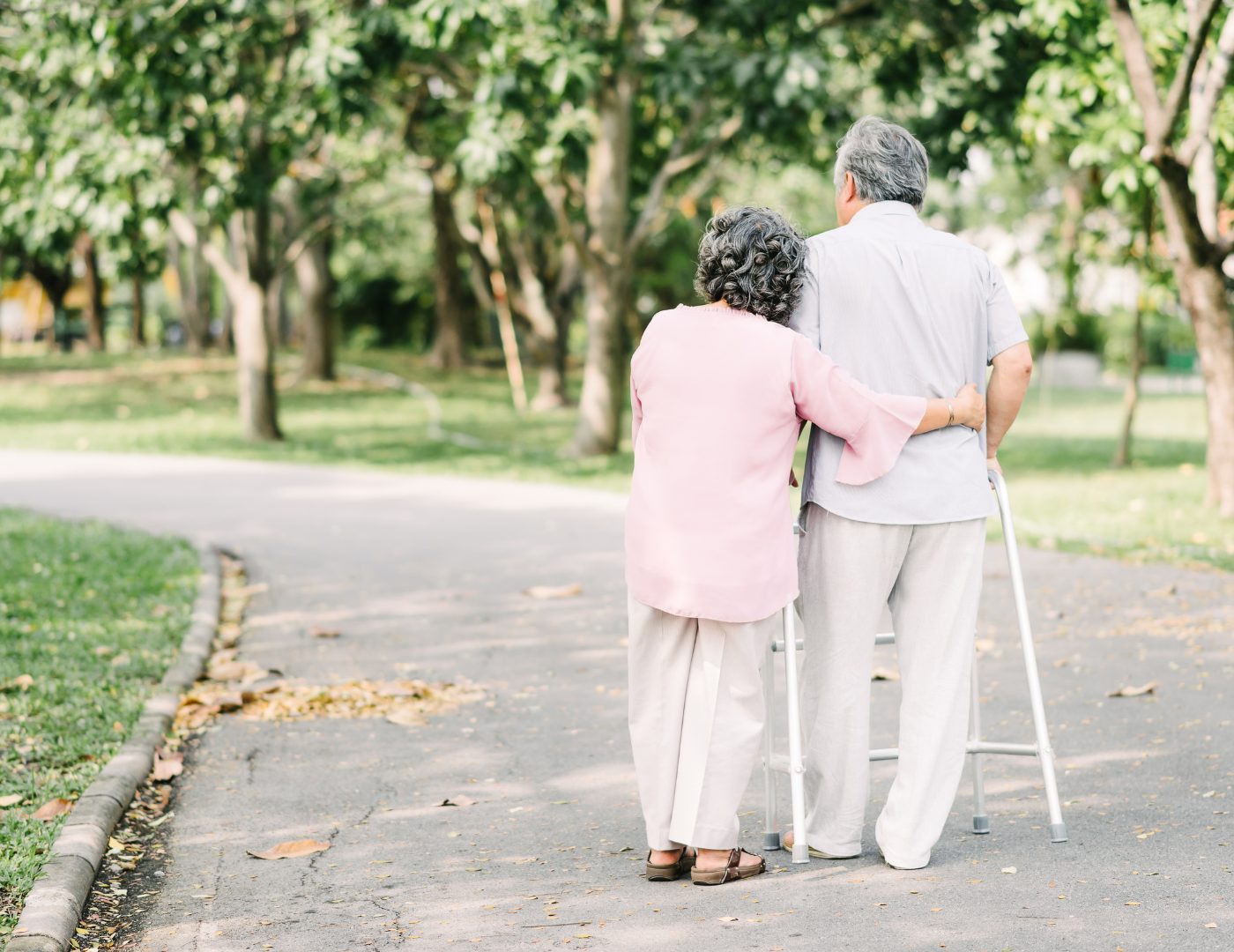As you start to get older, it’s natural that your health takes centre stage. Good health, which you may have been lucky enough to take for granted when you were younger, can start to feel like it takes a bit more work. And your body can start to slow down, or do surprising or unwelcome things.
But that doesn’t have to stop you from living a vibrant and active life. It may just take a bit of extra thought and planning to take control of elderly health and wellness. This handy healthy ageing guide shows you the key areas you need to take care of you as you get older, in order to stay healthy and strong. Let’s dive into some healthy ageing tips.
Why is healthy ageing important?
Healthy ageing is important because it increases your chances of living longer, of course, but it also helps to improve your quality of life along the way. You’re better able to maintain your physical and mental health, continue to engage in meaningful activities, and contribute to your community..
Healthy ageing also means you can potentially spend less time in hospital and live independently for longer. From a broader perspective, with an ageing population like Australia’s, healthy ageing means less burden on our healthcare system, so the knock-on effects are significant.
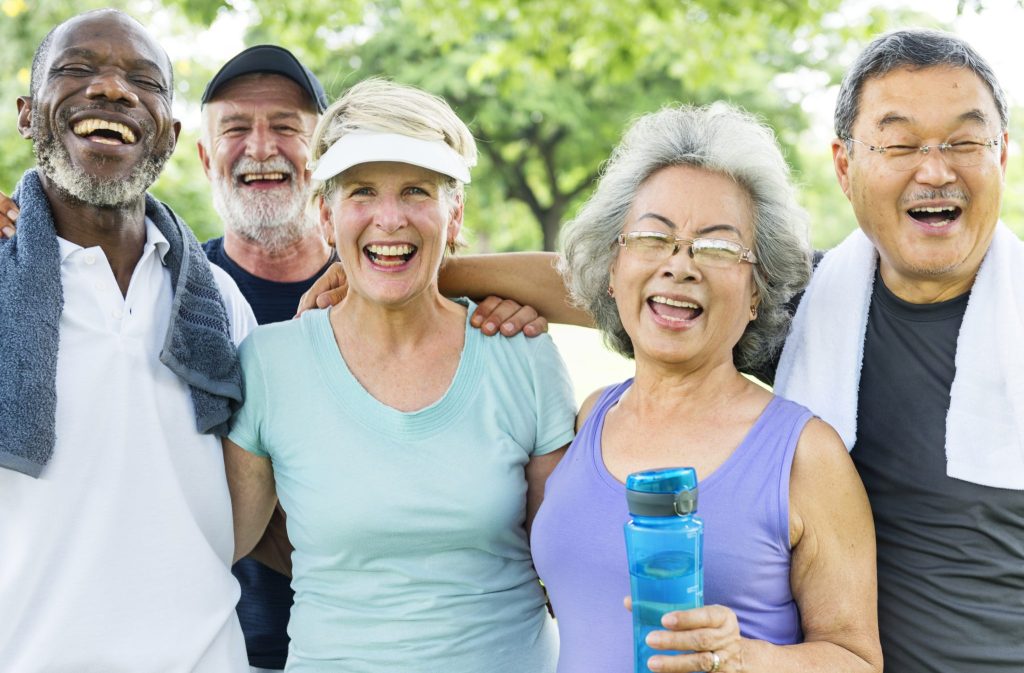
Nutrition and hydration
As you get older, prioritising nutrition and hydration becomes more important than ever for maintaining overall elderly health and wellness.
Nutrition essentials
- Try to consume a well-balanced diet, rich in fruits, vegetables, whole grains, and lean proteins. These nutrient-dense foods provide essential vitamins and minerals which are important for combating age-related health issues.
- Prioritise portion control to manage calorie intake and maintain a healthy weight. Smaller, frequent meals throughout the day can help regulate energy levels and promote digestion.
Balanced meals
- Aim for meals that encompass a variety of food groups. Incorporate colourful vegetables, lean proteins, whole grains, and healthy fats into your daily diet to ensure a diverse range of nutrients.
- If you have any existing medical conditions, such as diabetes, it could be useful to talk to your doctor, or a nutritionist, to tailor dietary plans based on individual health needs and any existing medical conditions.

Staying hydrated
- Hydration is key to supporting your body to function the way it should, including digesting food and absorbing nutrients, moving well, getting rid of waste products, and keeping your body at the right temperature. Health Direct advises there is no ‘correct’ amount of water to have each day, but as a guide, men should aim for 10 cups of water a day, and women should aim for 8 cups of water a day.
- Include hydrating foods such as water-rich fruits and vegetables into your meals. Herbal teas and broths can also contribute to your overall fluid intake, so there are lots of ways to make sure you stay hydrated.
Ensuring proper nutrition and hydration not only helps you to stay physically healthy, it also plays a pivotal role in maintaining your cognitive function and helping you to lead a vibrant and active lifestyle as you age.
Physical activity
Engaging in regular physical activity is a cornerstone of healthy ageing, with a massive range of benefits that can boost your health, prevent elderly health issues, and inspire you to keep moving. And with Australia’s ageing population, there are lots of organised activities you can join, so you don’t have to do it alone!
Regular physical activity can have benefits such as:
- Enhancing your cardiovascular health, and reducing the risk of heart disease and stroke.
- Improving your flexibility, balance, and coordination, which can help prevent falls and help you to maintain your mobility.
- Boosting mood and mental wellbeing, helping to minimise or prevent some symptoms of depression and anxiety.
- Aiding in weight management, contributing to overall health, and reducing the risk and severity of chronic conditions, such as arthritis, heart disease and osteoporosis.
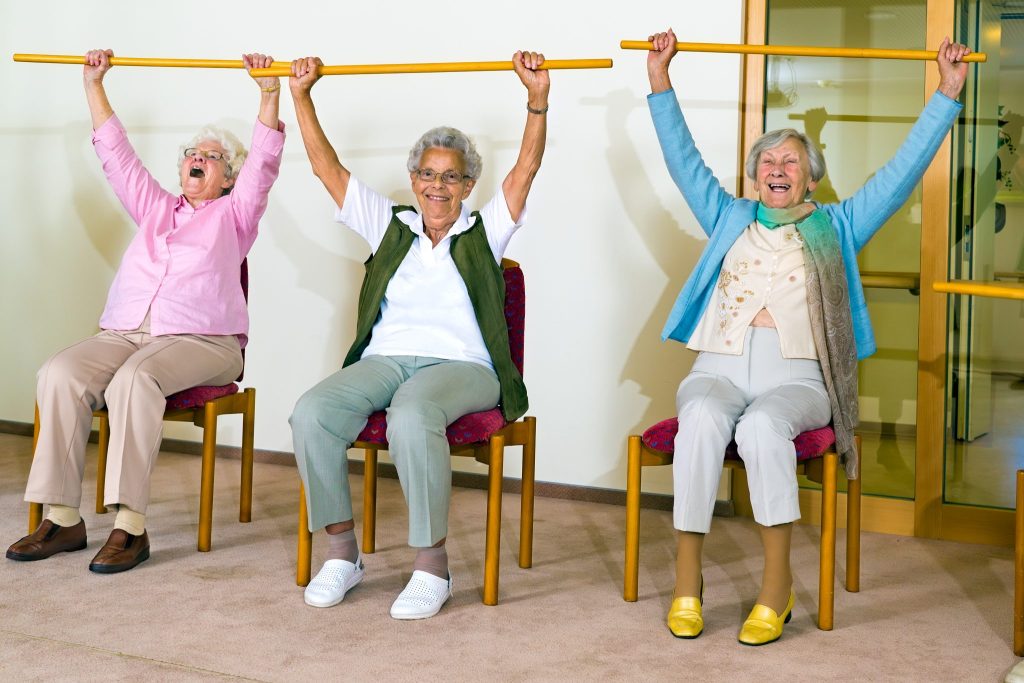
Low-impact exercise options
Low-impact exercise is advisable because of its gentle nature, which significantly reduces the risk of joint strain and injury. Some low-impact exercises to try include:
- Walking: A simple but effective exercise that can be tailored to various fitness levels, the great thing about walking is that you can do it just about anywhere, and you don’t need any fancy equipment.
- Swimming: Gentle on joints, swimming provides a full-body workout, promoting cardiovascular fitness.
- Yoga: Enhances flexibility, balance, and mindfulness, making it an ideal low-impact option.
Tips to help you get started
- Set realistic goals: Begin with achievable objectives, gradually increasing your intensity and duration over time, while making sure you feel comfortable and avoid injury.
- Find a workout buddy: Exercising with a friend not only adds a social element but also provides motivation and accountability.
- Choose enjoyable activities: Go for activities that bring you joy. This will make it more likely you’ll want to come back and do it again.
Mental health for older persons
Taking care of your mental health is important at any age for overall wellbeing, but it can come with some unique challenges as we start to get older. Depression can be common in seniors, especially if you’re facing sadness or loss, linked with health changes or life transitions. It’s also natural to go through periods of anxiety, worrying about health or finances, or because of feeling socially isolated.
While these challenges are natural and common in our ageing population, there are plenty of things you can do to proactively take care of your mental health, and the best way is to integrate these practices into your day-to-day life. This can help you to be more resilient, have improved cognitive function, and a more positive outlook on life.
Some strategies you can try include:
- Social connections: Foster relationships and catch up regularly with friends, family, and community to combat loneliness and promote emotional support.
- Hobbies: Engage in activities that bring you joy and fulfilment. It doesn’t matter what sort of hobby you are involved in – all that matters is that you enjoy it.
- Stress management: Practise stress-reducing techniques, such as meditation, deep breathing exercises, or gentle yoga.

Sleep and rest
Getting enough sleep and rest is important for seniors, if you’d like to maintain your health and wellbeing. Quality sleep is linked to mood regulation, cognitive function, and overall physical health. After middle age, the hormones that help us go to sleep are released earlier in the day, so our sleep needs can also change – but guidelines still suggest seven to nine hours of sleep per night. The Sleep Health Foundation says that four in 10 seniors have a nap during the day, so those hours don’t have to be all at the same time.
Tips for getting good quality sleep:
- Maintain a regular sleep routine, going to bed and waking up around the same time each day.
- Create a calming atmosphere by dimming lights, minimising noise, and ensuring your bedding is comfortable and welcoming.
- Limit your caffeine intake, especially after lunch.
- If you suffer from restless leg syndrome, regular exercise, a warm bath, and avoiding caffeine and nicotine can help to alleviate your symptoms.
Preventative healthcare
Of course, the best type of healthcare is prevention, and there are things you can do to stay healthy, and detect any issues early. Talking to your doctor about what regular check-ups and screenings they advise is a great start.
- Some examples of preventative healthcare measures are:
- Regular check-ups: Schedule routine visits with your healthcare provider to monitor and manage your overall health.
- Screenings: Participate in screenings for conditions such as cancer, diabetes, and osteoporosis to catch any potential problems in their early stages, so they can be treated and managed.
- Vaccinations: Stay up-to-date on vaccinations to protect against infectious diseases, especially as immunity may change with age.

Managing chronic health conditions
Chronic conditions can become more a part of your life as you get older, so it can help to manage them well, so you can feel at your best. Some chronic conditions you might have to deal with are:
- Diabetes: managing blood sugar levels through diet, exercise, and medication
- Heart disease: adopting a heart-healthy lifestyle with a balanced diet, regular exercise, and medication
- Arthritis: Managing pain and stiffness through gentle exercises, joint protection techniques, and medication.
Tips for managing chronic conditions effectively
The most important thing to do when you have a chronic health condition is to work with your healthcare providers and maintain open communication with them so they understand your symptoms and can help you.
You can also:
- Schedule routine appointments to monitor and adjust your management plan as needed.
- Take your prescribed medications diligently and communicate any concerns or side effects with your doctor.
- Embrace a healthy lifestyle with regular exercise, a balanced diet, and stress management to support overall wellbeing.
- Explore complementary approaches like physical therapy, acupuncture, or mindfulness to supplement traditional medical treatments.

